From film to television to music, Latter-Day Saints have left an indelible mark on Hollywood, starring alongside legendary performers in the process. Here are the lucky few whose careers have been immortalized on the Hollywood Walk of Fame in Los Angeles, California.
1. Laraine Day
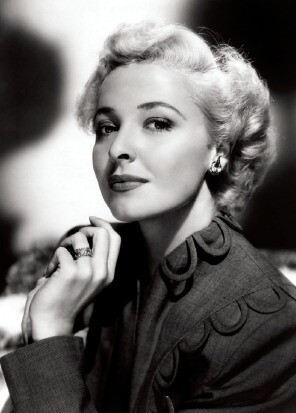
Latter-day Saint actress Laraine Day played roles opposite of Hollywood’s most iconic leading men, including Cary Grant, Gary Cooper, John Wayne, Ronald Reagan, and Kirk Douglas. She starred in nearly 50 films and was the first Latter-day Saint actress to earn a star on the Hollywood Walk of Fame, which she received in 1960.
Day got her start when her family moved from Utah to California. She made her first small film appearance in 1937, though her most famous role was as nurse Mary Lamont in the Dr. Kildare movie series. Day also appeared on a number of other television shows, including Alfred Hitchcock Presents, Fantasy Island, Love Boat, Lou Grant, and Murder, She Wrote.
2. Dean Jagger
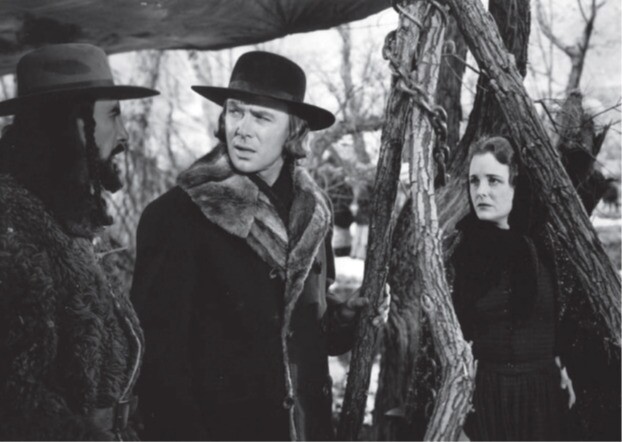
Dean Jagger made his film debut in 1929. But until he starred in Brigham Young in 1940, he was a little-known actor. He went on to star in Twelve O'Clock High (1949), for which he won an Academy Award for Best Supporting Actor, as well as White Christmas (1954).
Jagger joined the Church when he was in his late 60s after marrying Latter-Day Saint Etta Mae Norton. He appeared in nearly 100 films and was awarded a star on the Hollywood Walk of Fame in 1960.
Fun Fact:
For the making of Brigham Young, Twentieth Century Fox consulted with Church historians and leaders, including President Heber J. Grant.
3. Glen A. Larson
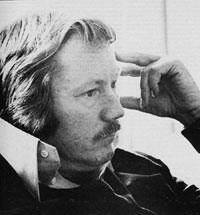
Church member Glen A. Larson was a prolific television producer and writer. Perhaps best known for his science fiction series Battlestar Galactica, Larson worked several Latter-day Saint themes into the show.
For example, the colonies originated from the planet Kobol (thought to be an anagram of Kolob) and were governed by a “council” or “quorum” of 12. And in the episode “War of the Gods, Part 2,” angels (or advanced beings) explain, “As you are now, we once were; as we are now, you may become.” Sound familiar? Compare it to Lorenzo Snow's famous couplet, “As man is now, God once was; as God is now, man may become.” Even marriages were referred to as sealings that lasted “not only for now, but for all eternity.”
Larson also worked on several other popular television shows such as The Six Million Dollar Man, The Fall Guy, Magnum P.I., Knight Rider, Quincy, M.E., Hardy Boys/Nancy Drew Mysteries, Buck Rogers in the 25th Century, and B.J. and the Bear.
Larson was awarded a star on the Hollywood Walk of Fame in 1985. He passed away from esophageal cancer in 2014.
Fun Fact:
Larson got his start in the entertainment industry in 1956 as a member of the vocal group The Four Preps, releasing three gold records with Capitol Records. He wrote and produced several songs for the group and later used his musical talents to write the theme songs for The Fall Guy, Battlestar Galactica, and B. J. and the Bear.
4. Gladys Knight
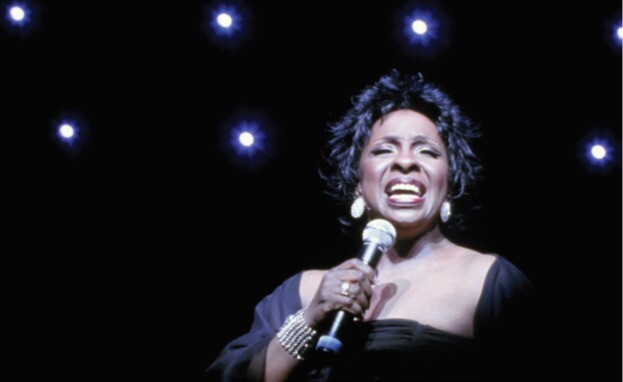
Gladys Knight began singing at age four, and at just seven years old had her first taste of fame when she won Ted Mack’s Original Amateur Hour TV show contest in 1952. The next year, she, her sister Brenda, her brother Merald, and cousins Eleanor and William Guest formed a musical group called the Pips—named after her cousin, James “Pip” Woods.

Brenda and Eleanor were eventually replaced with cousin Edward Patten and friend Langston George, and the group went on their first national tour when Gladys was 11 years old. In 1966, Gladys Knight & the Pips signed with Motown Records, where despite Knight’s powerful voice and the Pips’ smooth vocals and impressive dance moves, they were still considered a second-class act. They soon exceeded expectations, however, with the release of several hit singles, including “I Heard It Through the Grapevine,” “Friendship Train,” and “I Don’t Want to Do Wrong.”
The act signed with Buddah Records in 1973 and achieved a new level of success with the R&B chart-topper and Grammy-winning “Midnight Train to Georgia,” as well as “I’ve Got to Use My Imagination,” and “You’re the Best Thing That Ever Happened to Me.”
The Pips retired in 1988, and Knight has enjoyed a successful solo career ever since.
In 1976, Knight made her acting debut as the lead in the film Pipe Dreams, for which she was nominated for a Golden Globe Award for New Star of the Year–Actress. In 2003, she had a small role in the hit movie Hollywood Homicide, starring Harrison Ford. She was also featured in Tyler Perry's film I Can Do Bad All By Myself (2009).
In addition to film roles, Knight guest-starred on several television series, including The Jeffersons, A Different World, Benson, Living Single, The Jamie Foxx Show, and New York Undercover. She also made a number of television cameo appearances on shows such as 30 Rock and Las Vegas.
Knight joined the Church in 1997, years after her son and daughter were baptized. She told LDS Living, “My son Jimmy and his wife were the first to join the Church, after his best friend shared his testimony. Then my daughter, Kenya, joined the Church. I watched their lives grow, and to see how my grandchildren were being raised and what they knew really impressed me.”
She received a star on the Hollywood Walk of Fame in 1995, and Gladys Knight & the Pips were inducted into the Rock & Roll Hall of Fame in 1996.
Learn more about Gladys Knight's conversion story, as well as her thoughts on race and religion.
And don't forget to check out her one-of-a-kind CTR ring!
5. Marie Windsor
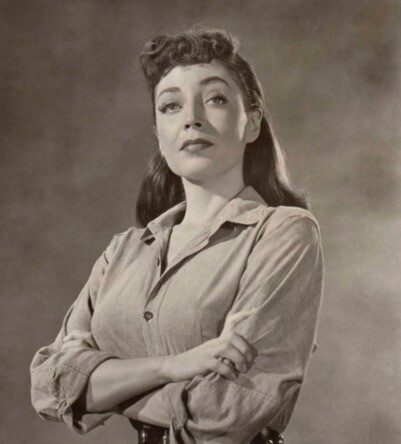
After majoring in drama at Brigham Young University, Utah beauty queen Marie Windsor moved to Hollywood in 1940 to pursue an acting career.
After appearing in a few small parts, Windsor headed for New York, where she acted in more than 300 radio dramas. She played a femme fatale in Broadway's Follow the Girls, which was followed by a contract at MGM. The studio cast her in movies ranging from Hellfire (1949), one of her favorites, to Abraham Polonsky's film noir classic Force of Evil, opposite John Garfield.
After appearing in second-string films such as Cat Women of the Moon (1953) and Swamp Women (1956), Windsor earned the nickname “Queen of the B's.” But her role as a gangster's widow in the low-budget sleeper The Narrow Margin (1952) caught the attention of a young Stanley Kubrick, who cast her as the scheming wife in The Killing (1956).
Throughout her career, Windsor appeared in 76 feature films opposite such leading men as Marlon Brando, James Garner, David Niven, and George Raft. She also appeared in more than 100 television shows, including Charlie's Angels, Fantasy Island, Gunsmoke, Maverick, Perry Mason, Simon & Simon, and Murder, She Wrote.
Windsor was awarded a star on the Hollywood Walk of Fame in 1983.
6. Billy Barty
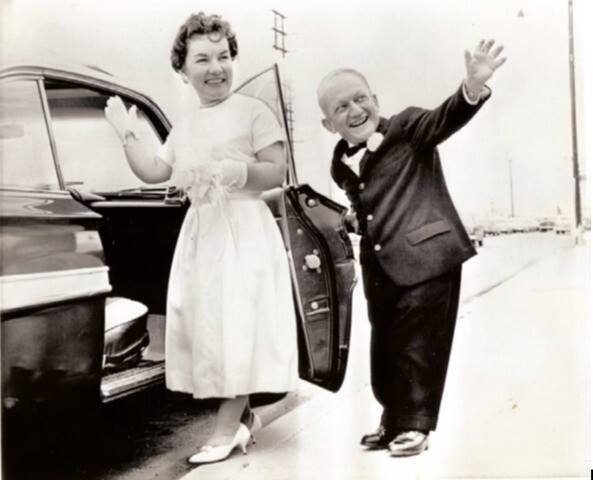
Billy Barty is perhaps the most recognizable of all little people.
Barty, who stood 3 feet 9 inches tall, began acting in 1927 at age 3. During the course of his career, he appeared in more than 200 films and starred in vaudeville, radio, and television shows. He worked with such legends as Mickey Rooney and Elvis Presley.
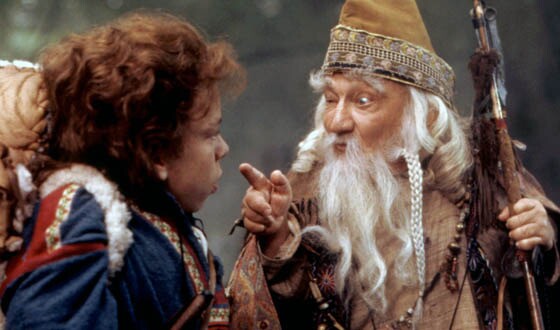
Barty was also a dedicated activist to promote the rights of others with dwarfism. In 1957, he gathered with a group of 20 other people “of short stature” in Reno, Nevada, and spent the week sharing ideas and hopes. During this historic meeting, Little People of America was founded. Barty established the organization in hopes of providing support and information for people of short stature and their families, as well as to dispel misunderstandings about little people. Over 50 years after its establishment, Little People of America continues to flourish with more than 6,000 members, 13 districts, and 70 chapters.
Barty received a star on the Hollywood Walk of Fame in 1981.
7. The Osmond Family
The Osmonds got their start in entertainment in the late 1950s when Alan, Merrill, Jay, and Wayne began singing locally as a barbershop quartet. A few years later, they were invited to perform at Disneyland.
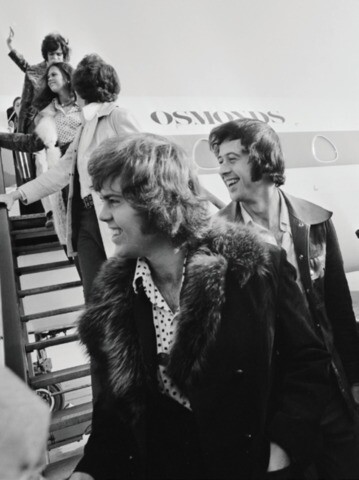
After Andy Williams's father saw them on a televised Disney special, he told his son, the host of the popular variety program called The Andy Williams Show, to book them. The Osmond Brothers appeared regularly on the program throughout the '60s, with younger brother Donny joining the group and siblings Jimmy and Marie performing as well.
During the '70s, the Osmonds shifted to pop music and later to rock-and-roll, playing to throngs of screaming fans. Donny, Jimmy, and Marie began to make their own successful solo careers, with 13-year-old Marie hitting the top of the country music chart with "Paper Roses" in 1973 and Jimmy having hits in Japan.
Donny and Marie also began recording duets together and had several hit songs. Soon Donny and Marie became the top priority for the Osmond family, with older brothers producing ABC's The Donny & Marie Show, which ran from 1976 to 1979.
Marie continued to record country music throughout the '80s, garnering several Top 40 hits. Alan, Merrill, Wayne, and Jay began recording country music in the '80s, again under the name The Osmond Brothers. Donny returned as a solo artist in 1989 with two Billboard Top 40 hits with "Soldier of Love" in the #2 spot and "Sacred Emotion" at #13.
From 2007-2008, all the Osmonds went on a European reunion tour to celebrate 50 years in show business. After the tour, Donny and Marie began performing a 90-minute show in Las Vegas, where they are still one of the hottest tickets in town.
The Osmonds have sold 102 million records worldwide, and the family was awarded a star on the Hollywood Walk of Fame in 2003.
8. Mack Swain
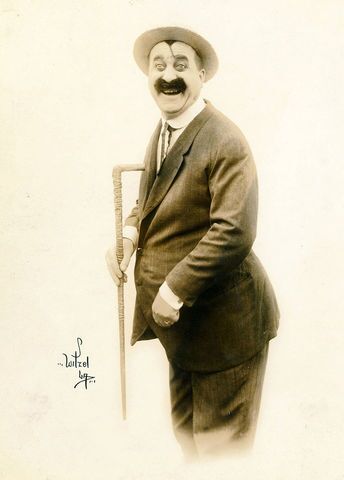
Moroni "Mack" Swain was born on February 16, 1876, in Salt Lake City, Utah. He began performing on vaudeville at a young age and starred in his first silent film in 1913.
Swain then starred in a series of comedy films with comic Chester Conklin, with Swain creating a character by the name of Ambrose, who appeared with Mr. Walrus (played by Conklin). The most notable films from the duo are The Battle of Ambrose and Walrus and Love, Speed & Thrills, both of which were released in 1915. Swain and Conklin also appeared together in 26 additional films.
Swain's stardom increased when he began working with silent film legend Charlie Chaplin. Swain appeared in The Idle Class, Pay Day, and The Pilgrim. He is also remembered for his large supporting role as "Big Jim McKay"' in the 1925 film The Gold Rush, which Chaplin wrote and starred in.
In 1932 Swain received an Academy Award nomination for best short, "Stout Hearts and Willing Hands." He retired soon afterward.
On August 25, 1935, Swain died in Tacoma, Washington, following an illness that lasted just a few hours.

